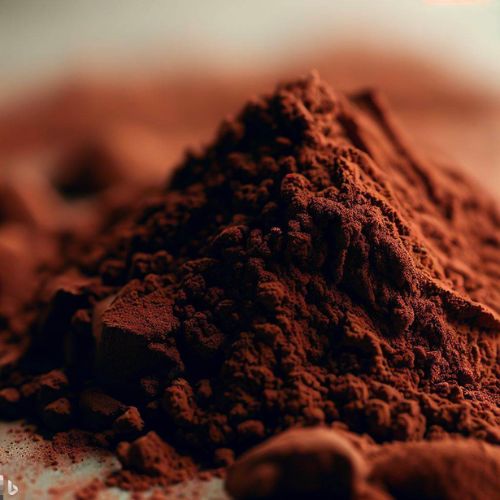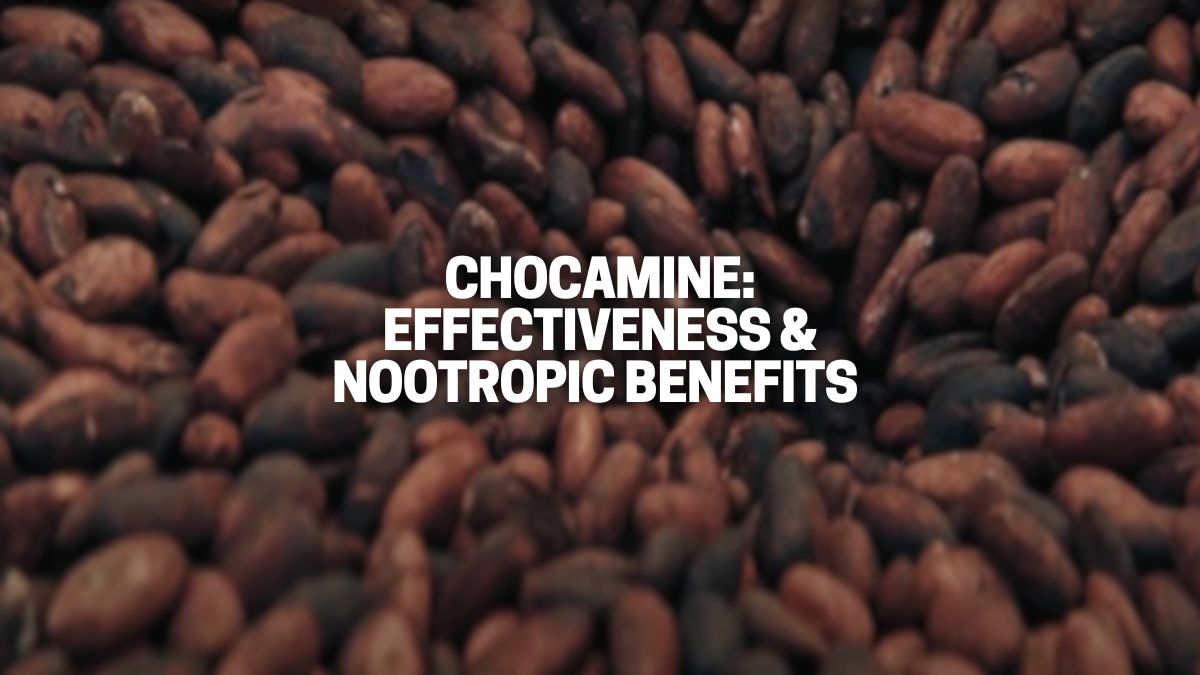Any regular reader will know that I generally shy away from reviewing branded products. That’s particularly because I rely solely on scientific data–and any study of a branded supplement is ripe for bias. What I do, instead, is research the clinical trials, scientific studies, and even available textbooks to determine if claims to supplement ingredients have any real validity.
Chocamine, however, is a bit of an outlier. It is a branded ingredient, but really, all it is is a cocoa extract. For this article, then, I’ll look at the Nootropic benefits of Cocoa; one of its key compounds, Theobromine; and a common additive with Cocoa, Caffeine. Theobromine and Caffeine are naturally occurring in Cocoa extracts, but Chocamine also adds both of these to its product, making the study of those two compounds important in their own right.
Key Findings:
Cocoa Studies
Several studies have been conducted on the effects of Cocoa–and it’s no wonder. Worldwide chocolate consumption is projected to hit 7.5 million tons by the end of the year.
One of the largest studies on Cocoa and cognitive function looked at a cross section of 11 intervention studies (trials where Cocoa was an active variable).
They found that both short-term and long-term (acute and chronic, in scientific parlance) Cocoa use increased cognitive performance. Not only that, but researchers were able to isolate a few mechanisms through testing after Cocoa use.

In acute uses, they found increased oxygen flow to brain tissue; in chronic uses, researchers determined that there were increases in neurotrophins–proteins that help build the actual neurons in our brains that carry signals for everything from memory to motor skills.
Another study not only found the same neurotrophic effects, but also found that Cocoa can increase the bioavailability of nitric oxide in the brain (helping with vascular health), significantly increase blood flow in the brain, and even improve cognitive function in the elderly.
There are literally dozens more studies–observational and trial–that show that Cocoa is associated with improved health outcomes. Once scientists found that there may be several chemicals within Cocoa responsible for these outcomes, they began teasing out some of these compounds to test them independently. One of those, Theobromine, has shown some of the most promise when it comes to brain function.
Theobromine Studies
Theobromine (also seen as L-Theobromine) is an important compound found in Cocoa–it is much higher in Dark Chocolate than other chocolates, nearly non-existent in white chocolate.
One test conducted in Japan recently found that Dark Chocolate consumption was associated with both higher Theobromine levels in participants’ plasma, but also significantly better post-trial cognitive test results. Building on this research, but looking to determine the physiological mechanisms, another team of researchers gave laboratory animals Theobromine extract, and tested not only their memory but also their brains were later extracted to determine what changes had taken place.

Researchers found significantly higher growth and expression of key neural pathway building proteins in the Theobromine animals.
Additionally, chemical analysis of Theobromine has found it is an adenosine agitator–adenosine gets in the way of neural functions, and by attacking them, Theobromine increases cognitive function.
Caffeine Studies
Perhaps one of the most controversial food ingredients out there, with scientists weighing in on every side of the issue. And it’s a good thing for all of us that there’s this much conversation: 93% of Americans take in caffeine in some way or another, from tea to coffee, to yes, chocolate.
Without covering every single one of the hundreds of reports out there, the highlights from the literature say that caffeine, in low to moderate levels, can indeed increase cognitive and physical performance, including for the elderly.

Chemically, these positive results are due to the same adenosine antagonism seen from Theobromine–and no surprise, given that both of them are in a group of compounds called methylxanthines.
In addition, we all know that Caffeine is a stimulant. Clinical and laboratory data has confirmed that in metabolization, Caffeine increases the cellular availability of energy, helping our muscles, nerves, and brain do more with less.
Bringing It All Together
While no reliable data can be found for scientific studies of the proprietary blend Chocamine, there are several studies that have looked at the combination of its ingredients in levels higher than naturally found. That is to say, Caffeine and Theobromine are naturally found in Cocoa, but I did find two compelling studies that looked at the effects of isolated Cocoa, Theobromine, and Caffein, in concert with one another and individually.
In the first study, published most recently in the Journal Prevention of Alzheimer’s Disease, over 2,000 participants’ data was analyzed to find any correlations between theobromine and cognitive function. They not only found that Theobromine improved cognitive performance, but that it was most associated with better scores when combined with Caffeine.
A separate study, using placebo and randomization controls, found that taking Caffeine and Cocoa together improved all test factors better than taking either Caffeine or Cocoa alone. These data included checking for omitting information in tests, making errors, and feeling anxiety.
Conclusion
Absent any direct scientific research into the product Chocamine itself, it appears clear that there are significant benefits for cognitive performance from not only Cocoa, but from two of its components, Caffeine and Theobromine. Additionally, there appears to be growing evidence that increasing the Caffeine and Theobromine intakes beyond what naturally occur in Cocoa can further improve cognitive function.

